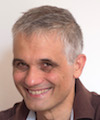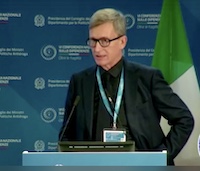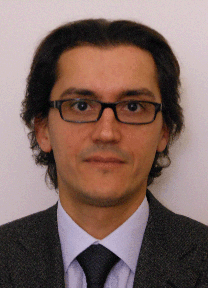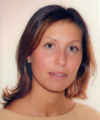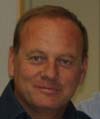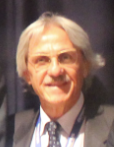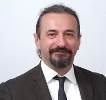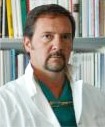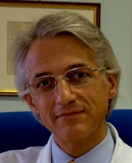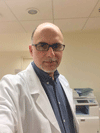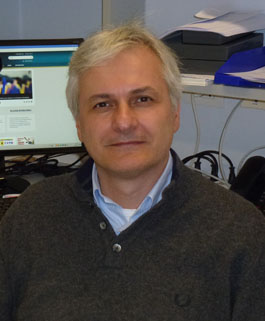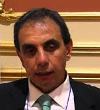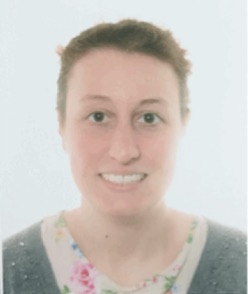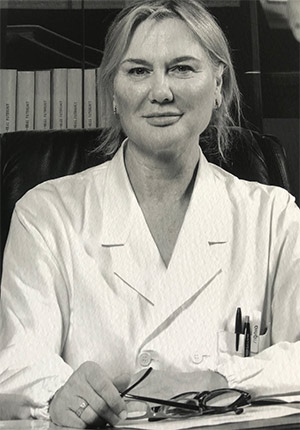Studying at the University of Verona
Academic calendar
The academic calendar shows the deadlines and scheduled events that are relevant to students, teaching and technical-administrative staff of the University. Public holidays and University closures are also indicated. The academic year normally begins on 1 October each year and ends on 30 September of the following year.
Course calendar
The Academic Calendar sets out the degree programme lecture and exam timetables, as well as the relevant university closure dates..
| Period | From | To |
|---|---|---|
| LEZIONI 1° SEMESTRE 2°-3°-4°-5°-6° ANNO | Oct 1, 2020 | Dec 23, 2020 |
| LEZIONI 1° E 2° SEMESTRE (INSEGNAMENTI ANNUALI) | Oct 1, 2020 | May 28, 2021 |
| LEZIONI 1° SEMESTRE 1° ANNO | Oct 19, 2020 | Dec 23, 2020 |
| LEZIONI 2° SEMESTRE 1° 2° -3°-4°-5°-6° ANNO | Feb 15, 2021 | May 28, 2021 |
| Session | From | To |
|---|---|---|
| ESAMI DI PROFITTO SESSIONE INVERNALE A.A. 2019/2020 E 1° SEMESTRE A.A. 2020/2021 | Jan 7, 2021 | Feb 12, 2021 |
| ESAMI DI PROFITTO SESSIONE ESTIVA LAUREANDI A.A. 2020/2021 | May 31, 2021 | Jul 2, 2021 |
| ESAMI DI PROFITTO SESSIONE ESTIVA A.A. 2020/2021 | May 31, 2021 | Jul 30, 2021 |
| ESAMI DI PROFITTO SESSIONE AUTUNNALE A.A. 2020/2021 | Sep 1, 2021 | Sep 30, 2021 |
| Session | From | To |
|---|---|---|
| SESSIONE INVERNALE A.A. 2019/2020 | Mar 1, 2021 | Mar 12, 2021 |
| SESSIONE ESTIVA A.A. 2020/2021 | Jul 13, 2021 | Jul 30, 2021 |
| SESSIONE AUTUNNALE A.A. 2020/2021 | Oct 11, 2021 | Oct 22, 2021 |
| Period | From | To |
|---|---|---|
| FESTIVITA' OGNISSANTI | Nov 1, 2020 | Nov 1, 2020 |
| FESTIVITA' IMMACOLATA CONCEZIONE | Dec 8, 2020 | Dec 8, 2020 |
| VACANZE DI NATALE | Dec 24, 2020 | Jan 3, 2021 |
| VACANZE DI PASQUA | Apr 4, 2021 | Apr 5, 2021 |
| FESTIVITA' DELLA LIBERAZIONE | Apr 25, 2021 | Apr 25, 2021 |
| FESTIVITA' DEL LAVORO | May 1, 2021 | May 1, 2021 |
| FESTIVITA' DEL SANTO PATRONO SAN ZENO | May 21, 2021 | May 21, 2021 |
| FESTIVITA' DELLA REPUBBLICA | Jun 2, 2021 | Jun 2, 2021 |
| Description | Period | From | To |
|---|---|---|---|
| TIROCINIO 1°SEMESTRE | TIROCINIO 1°SEMESTRE | Oct 1, 2020 | Feb 12, 2021 |
| ATTIVITA' FACOLTATIVA O DI RECUPERO TIROCINIO | ATTIVITA' FACOLTATIVA O DI RECUPERO TIROCINIO | Oct 1, 2020 | Sep 30, 2021 |
| TIROCINIO 2°SEMESTRE | TIROCINIO 2°SEMESTRE | Feb 15, 2021 | Jul 23, 2021 |
Exam calendar
Exam dates and rounds are managed by the relevant Medicine Teaching and Student Services Unit.
To view all the exam sessions available, please use the Exam dashboard on ESSE3.
If you forgot your login details or have problems logging in, please contact the relevant IT HelpDesk, or check the login details recovery web page.
Should you have any doubts or questions, please check the Enrollment FAQs
Academic staff
 045 8122470
045 8122470
 mattia.marchiori@univr.it
mattia.marchiori@univr.it
 guido.martignoni@univr.it
guido.martignoni@univr.it
 alessia.pardo@univr.it
alessia.pardo@univr.it
 dora.renna@univr.it
dora.renna@univr.it
 annarita.signoriello@univr.it
annarita.signoriello@univr.it
Study Plan
The Study Plan includes all modules, teaching and learning activities that each student will need to undertake during their time at the University.
Please select your Study Plan based on your enrollment year.
1° Year
| Modules | Credits | TAF | SSD |
|---|
2° Year activated in the A.Y. 2021/2022
| Modules | Credits | TAF | SSD |
|---|
3° Year activated in the A.Y. 2022/2023
| Modules | Credits | TAF | SSD |
|---|
4° Year activated in the A.Y. 2023/2024
| Modules | Credits | TAF | SSD |
|---|
5° Year It will be activated in the A.Y. 2024/2025
| Modules | Credits | TAF | SSD |
|---|
6° Year It will be activated in the A.Y. 2025/2026
| Modules | Credits | TAF | SSD |
|---|
| Modules | Credits | TAF | SSD |
|---|
| Modules | Credits | TAF | SSD |
|---|
| Modules | Credits | TAF | SSD |
|---|
| Modules | Credits | TAF | SSD |
|---|
| Modules | Credits | TAF | SSD |
|---|
| Modules | Credits | TAF | SSD |
|---|
Legend | Type of training activity (TTA)
TAF (Type of Educational Activity) All courses and activities are classified into different types of educational activities, indicated by a letter.
Integrated odontostomatologic therapy (It will be activated in the A.Y. 2025/2026)
Teaching code
4S02653
Credits
14
Scientific Disciplinary Sector (SSD)
-
Learning outcomes
At the end of the course the student must have acquired the following knowledge in the field of diseases of the oral mucosa, of the soft tissues, of the salivary glands and of the maxillary bones: - know the main biological, genetic and molecular processes that underlie the onset of diseases by integrating the pathophysiological and pathological study with the clinical methodology; - be able to perform a patient examination: detect a correct medical history, conduct the oral examination of the oral cavity; - be able to: recognize conditions different from normality, recognize characteristic lesions, follow a correct reasoning that allows to request or execute procedures for the diagnosis of the main morbid frameworks or to be able to send to other specialist when necessary; - know and register diseases according to the classifications accepted by the international community; - know the drugs directly and indirectly related to the therapy of these diseases and understand the implications of the pharmacological therapy of systemic diseases concerning the dental therapies; - be able to: perform appropriate therapies (or address to other competence when necessary), recognize and manage correctly oral manifestations of systemic or psychiatric illnesses (or address to other competence when necessary); evaluate the general health of the patient and the relationships between other diseases and diseases of the oral cavity and modulate the dental treatment plan accordingly; identify treatment priorities in line with needs, - be able to: perform screening and early detection of oral diseases including cancer; - be able to: develop an interdisciplinary approach to the clinical case, also and especially in collaboration with other figures of the health team, deepening the knowledge of the rules and dynamics that characterize the work of the group of health workers. PRACTICAL ACTIVITY IN ODONTOSTOMATOLOGICAL CLINIC MODULE Educational objectives. The student must acquire the necessary skills for a correct identification and possible treatment of the most common benign and malignant pathologies that can affect soft and hard tissues of the oral cavity. These skills must also be used for primary and secondary preventive purposes. In particular, you will be asked to: - perform an adequate medical history collection with specific attention also for behavioral habits and drug therapies - perform an adeguate clinical examination of the oral cavity - know and interpret the main diagnostic methods available (Ultrasound, CT, MRI, needle aspiration , biopsy, cytological examination, histological examination) - set up a treatment plan, be it medical or surgical PRACTICAL ACTIVITY IN PREVENTIVE AND COMMUNITY DENTISTRY MODULE Learning objectives. The student must be able to recognize the risk factors from the point of view of the primary prevention of caries pathology, periodontal pathology, oncological pathology and bisphosphonate osteonecrosis through an adeguate collection of the anamnesis. The student will also have to identify early lesions in the field of oral cancers or precancerous conditions, of caries and periodontal pathologies from the perspective of secondary prevention. ODONTOSTOMATOLOGICAL CLINICAL MODULE Educational objectives. The course aims to critically educate the student in the knowledge of the anatomical structures of the oral cavity, of the main etiopathogenetic mechanisms of pathologies of odontostomatological interest as consequence of infection, inflammation, autoimmune reaction, preneoplastic disease, benign and malignant tumor). The course allows to acquire the knowledge related to clinical, laboratory and instrumental manifestations of the main pathologies with odontostomatological interest and their systemic correlations. The student will be able to learn the main diagnostic and therapeutic procedures of the most important odontostomatological pathologies in the field of preservation and care of oral cavity health.
Educational offer 2023/2024
You can see the information sheet of this course delivered in a past academic year by clicking on one of the links below:
Free choice courses
Modules not yet included
Career prospects
Module/Programme news
News for students
There you will find information, resources and services useful during your time at the University (Student’s exam record, your study plan on ESSE3, Distance Learning courses, university email account, office forms, administrative procedures, etc.). You can log into MyUnivr with your GIA login details: only in this way will you be able to receive notification of all the notices from your teachers and your secretariat via email and soon also via the Univr app.
Gestione carriere
Graduation
Documents
| Title | Info File |
|---|---|
|
|
pdf, it, 288 KB, 11/08/22 |
|
|
pdf, it, 305 KB, 24/03/22 |
|
|
pdf, it, 138 KB, 21/06/23 |
|
|
pdf, it, 379 KB, 24/03/22 |
Student login and resources
Sbarramenti
Documents
| Title | Info File |
|---|---|
|
|
pdf, it, 431 KB, 21/06/23 |
|
|
pdf, it, 292 KB, 21/06/23 |
Riconoscimento carriera pregressa
Documents
| Title | Info File |
|---|---|
|
|
pdf, it, 1215 KB, 21/06/23 |
Obblighi formativi aggiuntivi
Documents
| Title | Info File |
|---|---|
|
|
pdf, it, 275 KB, 21/06/23 |


